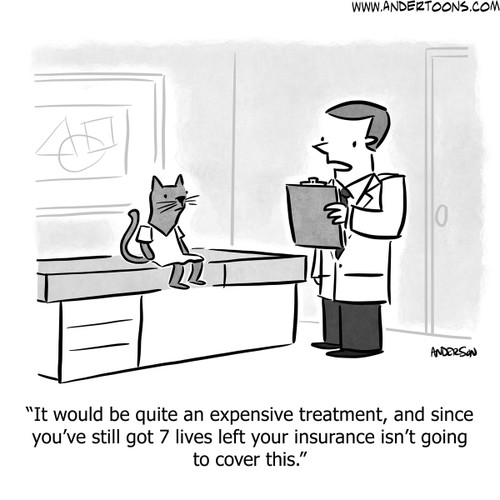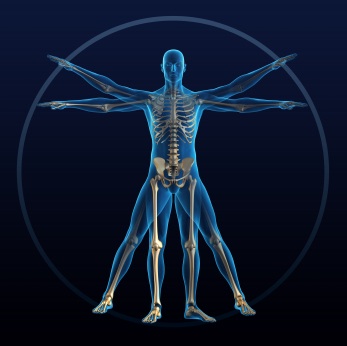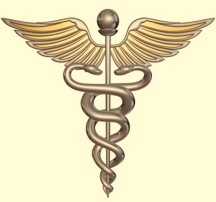A Guide for Physicians
and Other Healthcare Providers
The Art of Patient Care Blog
The Art of Patient Care Blog contains a listing of all the new and/or updated pages on this site. Also included are visitor comments, editorials, article reviews, case studies, pertinent news items and other miscellaneous information all related to enhancing our ability to provide high quality, competent and compassionate care to patients who are looking to us for our knowledge and support.
If you wish to add your own entry to this page, please fill out the form on the Comments Page.
Add a mobile app for this site to your smartphone. Just go to your browser in your smartphone and type www.aopc1.com in the address field and hit Enter or Go. Once you are in the app, save it to your home screen for easy access. Now you can take this site with you for reference wherever you go.
Search this site...

New Entries and Updates...
Nov 23, 2023
Happy Thanksgiving!

On this day of giving thanks, I am reminded of all of those who have supported this site over the years. I welcome your comments, your guest articles, and your readership. I am deeply grateful for all of you who are interested in these topics on humanity in medicine, the promotion of which, when combined with science, helps to improve healthcare everywhere. May your day be filled with blessings and joy as you gather with your friends and family.
Nov 17, 2023
Caring for Patients with Chronic Illnesses
Caring for Patients with Chronic Illnesses takes patience, understanding and compassion and is sometimes quite challenging. Here are some solutions.
Continue reading "Caring for Patients with Chronic Illnesses"
Sep 16, 2023
Elder Abuse
Information about a serious and rising health problem as our population becomes older.
Apr 11, 2023
Healthy Lifestyle
How to enjoy and healthy lifestyle while saving money at the same time.
Apr 11, 2023
Humor in Medicine
You have to have a sense of humor in medicine for many reasons, but be careful with it and don't overdo it.
Mar 08, 2023
Coastal Virginia Medical Society
A new medical society is born in Eastern Virginia. The Coastal Virginia Medical Society has been created by dedicated physicians from three cities - Norfolk, Chesapeake, and Virginia Beach. Their new website contains a Blog that may be of interest to other medical societies across the country. It promotes a new emphasis on improving our current beleaguered, overcomplex, inefficient, business-run healthcare system. There has to be a way to make this better. Let's get together and communicate with each other.
Mar 01, 2023
How to Teach Bedside Manner in Medical Schools
Teaching better bedside manner in medical schools is a crucial aspect of medical education as it helps future healthcare professionals to build trust with their patients and provide empathetic care. Here are some ways to teach better bedside manner in medical schools:
Role-play and simulations: One of the best ways to teach bedside manner is through role-playing and simulations. This approach allows students to practice their communication skills in a safe and controlled environment. Simulations can be used to teach students how to deliver bad news, communicate with patients with different cultural backgrounds, and how to manage difficult conversations.
Patient-centered care: Teaching patient-centered care is another effective way to improve bedside manner. This approach focuses on the patient's needs, preferences, and values. Students can learn how to listen to their patients, show empathy, and involve them in their care plans.
Interprofessional education: Interprofessional education (IPE) involves teaching students from different healthcare professions to work collaboratively. This approach helps students to understand the roles and responsibilities of other healthcare professionals and to learn how to work together to provide patient-centered care.
Cultural competence training: Cultural competence training is essential in teaching students how to provide care to patients from different cultural backgrounds. Students can learn about cultural beliefs and practices that may impact a patient's health and how to communicate effectively with patients from diverse cultures.
Patient feedback: Lastly, obtaining patient feedback can be a valuable tool in improving bedside manner. Encouraging patients to provide feedback on their interactions with students can help students to identify areas for improvement and to learn from their experiences.
In conclusion, teaching better bedside manner in medical schools requires a combination of different approaches. Incorporating role-playing and simulations, patient-centered care, interprofessional education, cultural competence training, and patient feedback can help to improve students' communication skills and build more empathetic and compassionate healthcare professionals.
Feb 07, 2023
Join Your Local Medical Society
The healthcare industry in America is not what it used to be. A lot of changes have occurred since the 1970s when I first started practicing. A few things are better, but most are not.
What's good?
1. Better technology.
2. Many advances in the science of medicine.
3. Medicare and Medicaid – great for seniors and for the disadvantaged.
What's not good?
1. Technology – EMRs – interfere with doctor-patient interaction. Don’t save time. Cost too much. Too much redundant information to be useful and efficient.
2. Art not keeping up with science.
3. Medicare and Medicaid – Inadequate reimbursement, archaic and costly regulations. Mandated record requirements add to the cost but not to the care.
4. Healthcare delivery, poor access to care.
5. Commercial insurance is a barrier to good care – too many restrictions on tests and medications that end up costing more in the long run and delaying efficient care.
6. Government, administrations, and insurance companies are controlling personal medical healthcare decisions.
7. Cost of everything medical is too high.
8. Fraud.
9. Fragmented care. Patients have 5 specialists but no primary care doctor.
10. Inefficiency.
11. Poor attention to patient needs. Long waits for testing and appointment scheduling.
12. Hospitals and ERs are overcrowded and have been for many years, even before the pandemic.
13. Inadequate primary care.
14. Lack of patient trust in the science of medicine.
15. Physician and nursing shortage.
16. Overburdening of healthcare workers.
17. Too many restrictions, and regulations.
18. Medico-legal issues. Frivolous lawsuits.
19. Distribution of healthcare dollars is grossly uneven and unfair.
20. Healthcare workers have little or no voice in decisions that affect healthcare.
21. Average life expectancy going down not up.
22. Poor prenatal care for many.
23. Lack of preparation for future pandemics and other anticipated disasters (We know they are coming, just don’t know when.)
24. Doctors are still not trained well in bedside manner and professionalism. This is not a high priority in most medical schools. Even if they are, the current incentives drive them to forget about it.
Who makes most of the decisions relating to patient care and all of the above problems? You would think it should be the experts in providing care, the ones who were educated for many years to learn how to take care of patients. But they have very little voice in the matter, especially locally, in our communities. We know what the problems are but are powerless to fix them.
That’s why it is so important for healthcare workers to belong to their local and state medical societies, and to be active in those societies. It’s the best way we have at this point to make a difference. By continuing to allow other people to make decisions for us, the healthcare system will remain broken.
The managed care systems of the 1970s and administrative institutions have ballooned into monstrous organizations. They have had 50 years to improve the system. And where are we now? We’re definitely going in the wrong direction. Medical people need a seat at that table. Join your local medical society. Help to make it stronger.
Feb 06, 2023
Why is Bedside Manner So Important in Patient Care?
Bedside manner refers to the way healthcare providers interact with patients and communicate with them. It encompasses their demeanor, tone, body language, and overall approach to patient care. Bedside manner is an essential aspect of patient care as it has a profound impact on the patient experience, health outcomes, and the provider-patient relationship.
Positive Impact on the Patient Experience: A healthcare provider with good bedside manner can make patients feel more comfortable and at ease, reducing their anxiety and stress. This, in turn, can lead to better cooperation and compliance with treatment plans, which is crucial for achieving good health outcomes.
Improved Provider-Patient Relationship: A provider with good bedside manner is able to establish a strong, trusting relationship with their patients. This is important for building trust and ensuring patients feel comfortable discussing their health concerns and asking questions. A positive provider-patient relationship can also lead to increased patient satisfaction and loyalty.
Better Health Outcomes: Patients who feel comfortable and trust their healthcare providers are more likely to follow treatment plans, adhere to medication schedules, and make lifestyle changes that promote health and wellness. Good bedside manner can also encourage patients to be proactive about their health, leading to improved health outcomes in the long term.
In conclusion, bedside manner is a critical aspect of patient care that can have a significant impact on the patient experience, provider-patient relationship, and health outcomes. It is essential that healthcare providers prioritize good bedside manner and work to continuously improve their communication and interpersonal skills.
Continue reading "Why is Bedside Manner So Important in Patient Care?"
Feb 04, 2023
Medical Professionalism
Medical professionalism is an integral part of the healthcare industry. It is a set of values, behaviors, and attitudes that are considered essential for providing high-quality medical care. These principles are essential in building trust between healthcare providers and their patients, and they help to ensure that medical treatment is safe, effective, and ethical.
The following are the core principles of medical professionalism:
Patient-centered care: Medical professionals should prioritize the needs and wellbeing of their patients. They should listen to their patients' concerns and make informed decisions based on their patients' best interests.
Compassion: Medical professionals should exhibit compassion and empathy towards their patients. They should show empathy for their patients' experiences and strive to understand their patients' perspectives.
Integrity: Medical professionals should act with integrity and honesty at all times. They should be transparent about their practices and maintain patient confidentiality.
Responsibility: Medical professionals are responsible for the well-being of their patients. They should be knowledgeable, well-prepared, and competent in their field. They should also take responsibility for their actions and make decisions based on their patients' best interests.
Respect: Medical professionals should treat all patients with respect, regardless of their background, culture, or beliefs. They should also respect their colleagues, and work collaboratively to provide the best possible care.
Medical professionalism is essential for maintaining the quality and safety of medical care. It is important for medical professionals to uphold these principles at all times and to strive for continuous improvement in their practices. This will ensure that patients receive the highest quality care, and that the reputation of the healthcare industry is maintained.
In conclusion, medical professionalism is a critical component of the healthcare industry. It helps to build trust between healthcare providers and their patients, and it ensures that medical treatment is safe, effective, and ethical. Medical professionals should strive to embody these principles in their practice and work to continually improve the quality of care they provide.
Jan 29, 2023
Five Steps to Avoid Physician Burnout
1. Prioritize Self-Care: Establishing a healthy work-life balance is key to avoiding physician burnout. Set aside time each day for activities that relax and rejuvenate, such as exercising, spending time with family and friends, or engaging in hobbies.
2. Cultivate Healthy Habits: Eating healthy, regular meals and getting adequate sleep are important to maintaining energy levels during the workday. Make sure to practice good self-care habits throughout the day.
3. Connect With Colleagues: Spending quality time with colleagues can provide needed social support and prevent feelings of isolation that are common among physicians dealing with burnout. Participating in team meetings, attending conferences and taking part in other professional development activities can also help stay connected and motivated.
4. Take Breaks: Taking regular breaks throughout the day can help improve concentration and focus while preventing burnout. Even brief pauses spent away from the patient care environment can give physicians a much-needed physical and mental break from their daily duties.
5. Manage Stress: Learning how to effectively manage stress is essential for avoiding burnout. Regularly practicing relaxation techniques such as deep breathing or progressive muscle relaxation can help reduce stress levels during times of intense pressure at work.
Jan 06, 2023
Continuity of Care A Personal Voyage
Carol Stickney and Opal Bristow published a book (let) entitled Discharge Planning and Continuity of Care. Carol had gotten sick later in life and needed
Jan 06, 2023
Patients asking questions
In the old days, good patients were the ones who didn't make any noise and were grateful, says Clancy. It turns out that those patients don't do so well.
Nov 11, 2022
Compassion Fatigue
What is Compassion Fatigue? Most healthcare workers have experienced it. Here is an article explaining it and providing resources to help.
Apr 18, 2022
Cannabis and Cancer
How patients can get relief from the side effects of cancer treatment.
Oct 04, 2020
Megan Warth: Nursing, Compassion, the Calling and COVID-19
After waiting in line for eight hours outside New York City’s Javits Center, Megan finally completed the check-in process. She and her Navy colleagues
Continue reading "Megan Warth: Nursing, Compassion, the Calling and COVID-19"
Jul 15, 2020
Hospice Care
Hospice care can provide peace and comfort for terminally ill patients and their families.
May 21, 2020
Senior Care Resource
Caring.com is a leading senior care resource for family caregivers seeking information and support as they care for aging parents, spouses, and other loved ones. We have been featured by AARP, The Administration for Community Living, The National Legal Resource Center, and Forbes, as well as referenced by many governmental agencies and organizations across the Internet.
Dec 15, 2019
Medical References and Resources for The Art of Patient Care
A listing of medical references and resources relating to the art of healing and patient care.
Continue reading "Medical References and Resources for The Art of Patient Care"
Oct 29, 2019
Burnout
Burnout is a syndrome that can bring even the most compassionate physician to his/her knees, resulting in poor bedside manner and, even worse, poor patient care.
Oct 23, 2019
Compassion
Compassion is an important component of patient care from both a therapeutic as well as a humanitarian viewpoint, yet its importance is little emphasized in our training.
Oct 14, 2019
What a wonderful site!
I am a dental surgeon in London England of nearly 30 years who came upon your site by chance. It is rare to find such a well grounded, logical and very
Aug 29, 2019
The Doctor Patient Relationship
The doctor patient relationship is a special bond like no other. It needs to be respected and treated carefully as a partnership emphasizing equality and trust.
Jul 20, 2019
Listening to Patients
Listening to patients is the key to proper pursuit of diagnosis and correct treatment.
Mar 06, 2019
Grief Reactions Associated with a Short vs. a Prolonged Illness
The grief reaction during a prolonged illness is difficult to endure. The relief afterwards can be unwittingly misinterpreted by superficial bystanders.
Continue reading "Grief Reactions Associated with a Short vs. a Prolonged Illness"
Dec 09, 2015
Retainer Practices and HMO Patients
Most of the time, in the world of PPO insurance and government-based insurance (Medicare and Medicaid), when a patient needs a referral to a specialist
Dec 09, 2015
Simply Amazing!
I am a corporate training & organizational development consultant for a large healthcare system. My primary responsibilities include training design, development,
Aug 15, 2015
Continuity of Care
Talking about continuity of care isn't enough. We have to do something about it.
Aug 15, 2015
Advance Directive
Discussing the advance directive and code status with patients and families is an art unto itself.
Aug 15, 2015
Providing extraordinary care
If somehow we can manage to maintain the same techniques taught in achieving our status in the medical field we would be extraordinary. Unfortunately,
Aug 15, 2015
Patient Care
To learn more about Patient Care in King Abdulaziz Medical City, please click here: Patient Care
Aug 15, 2015
Altruism in Medical practice
I have a concern about your statement that we should be concerned about the well being of the patients far more than our own (paraphrase). I beg to differ.
Aug 15, 2015
Patient Bathing
Hello, and Thank you, If you could guide me , (I need help in sharing this research) I felt I should advise you of a product that we have been
Mar 09, 2013
Health Insurance - Information
Looking for some reliable, updated, easy-to-understand information about health insurance in the U.S., and how it is affected by Obamacare? Check out this site...
Mar 03, 2013
Primum Non Nocere
We understand the need for proper utilization of medical resources, but knowingly causing potential harm to patients to reduce costs should not be part of the equation.
Dec 26, 2012
Interesting Patients
Medical students and residents love to have interesting patients. What makes a patient interesting? It's more about provider perception than the type of illness.
Dec 10, 2012
From The Beginning!
I first met Dr. Warth Dec.20, 1976 in the emergency room at Virginia Beach Hospital. God Blessed me that night. Coping with a masive heart attack, he worked
Nov 03, 2012
Maintaining the Extraordinary
If somehow we can manage to maintain the same techniques taught in achieving our status in the medical field we would be extraordinary. Unfortunately, even newcomers loose site very fast when dealing with over worked, under staffed, and plain lazy people who actually hide or pretend they do not hear a bell or alarm. Mercy!
-Barbara Jones, USA
Nov 03, 2012
"Gods"
I would like to appreciate your insight regarding this very important aspect of the medical profession. i think this article will or should enhance retrospection by all health professionals,majority of whom have forgotten how to be human and act like they are "gods".
-Julius Banks, Uganda
Jul 07, 2012
Health Reform
How much do we really know about the Patient Protection and Affordable Care Act (PPACA)? Amidst all the hype, emotion, confusion and misinformation about it, when it comes down to the real facts about it, I don't think the average, news-watching American really understands it or knows what's in it. I'm in the healthcare business and tested myself with a questionnaire about it recently and was surprised to find out that I didn't know as much about it as I thought.
I've also been a victim of media hype and misinformation.
I think one of the things that we have to be careful about is that there are many opinions about how certain aspects of the program are going to effect various groups and the nation as a whole in the future. These are mostly guesses and conjecture heavily tainted with bias. The bottom line about future effects is that nobody really knows; there are just too many variables - that's why there are so many differing opinions and projections. I think we will just have to live it and see what happens, then try to fix the parts that aren't working well.
One of the major physician organizations, the American College of Physicians, of which I am a member, seems to have a positive viewpoint about it. The article sited here seems factual, although it's not totally without bias, because it's written from the viewpoint of internal medicine physicians.
The government's informational website about it is at www.healthcare.gov. Of course, this has a positive bias about it also, but it is nevertheless factual.
One of the better listings of some of the important aspects of the ACA program presented as facts without a lot of guessing or conjecture can be found here in a format that even I could understand...
Apr 30, 2012
Support for the Patient During A Serious Illness
How should friends or family support a patient during a serious illness?
Continue reading "Support for the Patient During A Serious Illness"
Apr 17, 2012
On the Subject of Rewards in Medicine
After two long years of suffering with end-stage COPD and cor pulmonale, my patient, a 92 year old retired surgeon, whom I had seen on numerous occasions for home visits, died at home comfortably with a hospice nurse and family at the bedside. A few days later, the whole family came to see me at the office for the sole purpose of saying 'Thank you" for providing the same good care and personal attention to their father that he provided to his patients while he was practicing. Made my day!
Jun 04, 2011
Protocols
It's becoming common practice to use protocols based on evidence-based medicine in writing orders and treating various illnesses. While this is helpful as a reminder of evidence-based guidelines and provides a checklist so that you don't forget certain things as you are writing orders, please try to avoid the pitfall of using the protocol as a cookbook and as a replacement for thinking and using proper clinical judgement about an individual case.
Protocols are written as a guide that will probably work for the majority of routine illnesses, but patient care is loaded with so many different variables, that what works for many or even most, will not work for all patients.
Remember that, no matter how much certain institutions want to standardize care for diseases, it is impossible with current technology to standardize individual patients. If it were possible, our computers could direct patient care, and there wouldn't be a need for doctors. There may come a time, I am told, when computers will be able to think and maybe even surpass human intelligence, but we're definitely not there yet, and I personally hope we never will be.
For now, the doctor, not the protocol, should be running the show.
Apr 22, 2011
Nurses Week!
Beginning April 12th, Fibers.com kicked off their 2nd annual Nurses Week Design Challenge, where nurses and nurse-aficionados can create clever t-shirt designs in celebration of Nursing Week and the nursing profession. Users may submit designs using the simple yet powerful Fibers.com design tool.. no design skills necessary! Three brilliant & creative winners will be chosen on May 16th to win over $2000 in prizes including an iPad2.
Visit the following link to view, participate, and vote in the contest:http://www.fibers.com/contests/nurses-week-2011
Mar 23, 2011
Objectivity
Objectivity is another mark of professionalism in patient care - another goal for which to strive - but it's not always as easy as you might think.
Mar 04, 2011
Clinical Judgment
Clinical judgment requires a balance between compassion, science and common sense. How do we sort out what is the best option when there are no textbooks or studies that tell us what to do?
Disclaimer | Privacy Policy | Copyright | Sitemap | Contact | Comments

 Medical Art (sponsored)
Medical Art (sponsored)





















